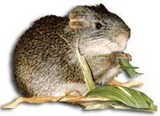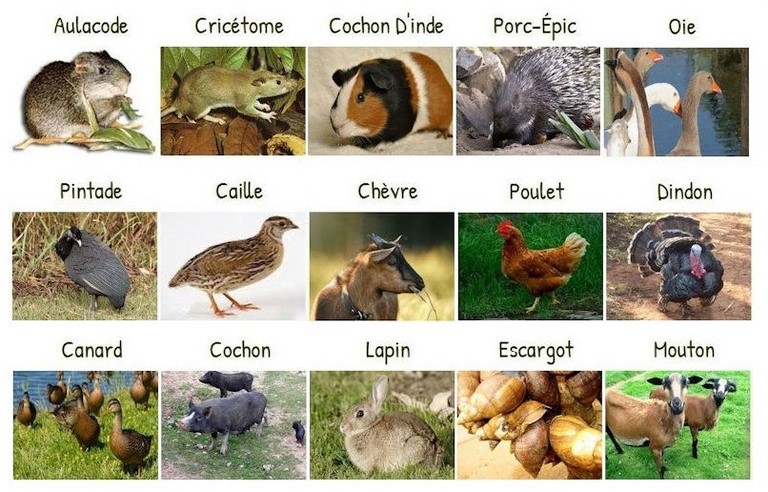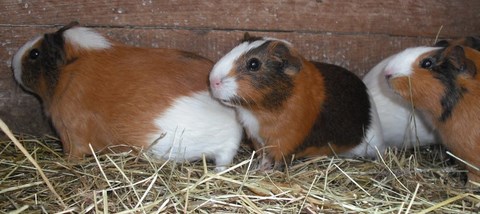Breeding
Aulacode (ou Agouti)

The breeding of Aulacode (or Agouti),
Big rodent appreciated by consumers in Central Africa.
Environmental Objectives:
by offering large quantities of game meat
farming in urban markets, livestock farming is directly competing
with the sectors of poached meats.
With the advantages of farmed meat (freshness, availability) that can be
preferred to poached meat, often poorly preserved, we can hope for an environmental impact
by substituting farmed meat for meat and then lowering
the poaching pressure.
Nutritional: Central African populations are big consumers of meat
This is a considerable contribution to animal protein. Game farming responds to this
consumption habit and provides fresh and quality meat, available all year round.
A study of the project showed that the bacteriological quality of game meat on the markets
was very bad. The same study showed the excellent condition of farmed meats
Activities Breeding of the grasscutter:
The grasscutter best meets the technical and economic criteria to lead to
the profitability of the operation.
The breeding techniques of this species are now better known, and their profitability demonstrated.
Google Traduction pour les entreprises :Google Kit du traducteurGadget Traduction
Caviaculture
The caviaculture (sometimes caviculture) or breeding of guinea pigs is the set of operations aimed at reproducing (in) the guinea pig (Cavia porcellus), the domesticated version of a species of unknown guinea pigs, in favor of human activity. The most used form is the cuy. This mini-breeding is mainly concerned with the production of meat for human consumption. It is mainly practiced in the Andean countries, more recently in West and Central Africa.








